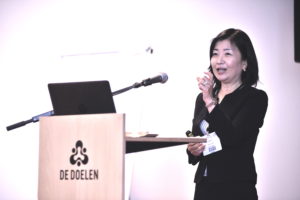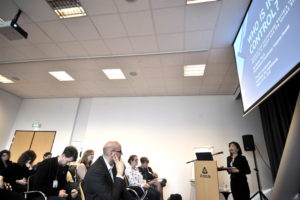March 13 – 16, 2019 “Who is in Control? Cultural and Institutional Barriers to EOL (“End of Life”) Decisions in Japan and the United States.” (7th Annual International Advance Care Planning Conference (ACP-I)) (Rotterdam, The Netherlands)


第7回ACP―I(国際アドバンスケアプランニング)学会にて日本と米国における終末期の意思決定の課題について、文化、医療制度の観点から発表しました。日本・米国共に高度な医学の恩恵を受けていつつも、終末期のケアの質ということに関しては、様々な課題を抱えています。日本ではACPを記入している人が8.1%しかおらず、終末期においてもどのようなケアを希望しているのかという会話が医療現場で交わされていないというのが現実です。今後市民活動や医療従事者に対する情報の提供、研修のあり方を課題として挙げました。
Dr. Morita addressed an international body of physicians, scholars and researchers on how the healthcare systems in America and Japan manage or fail to manage adequately patients’ end-of-life issues. Her presentation identified an array of cross-cultural factors that may interject themselves into a patient’s end-of-life care and how those factors can impede and at times, even prevent, the patient from achieving their desired quality of end-of-life care. The interplay of cultural versus institutional factors in the vastly different American and Japanese societies oftentimes results in a terminal patient’s wishes going unheard or unacknowledged. Thus, Dr. Morita provided a framework for recognizing the importance of EOL (“End of Life”) discussions and how that conversation is an essential part of providing quality care to the dying patient.